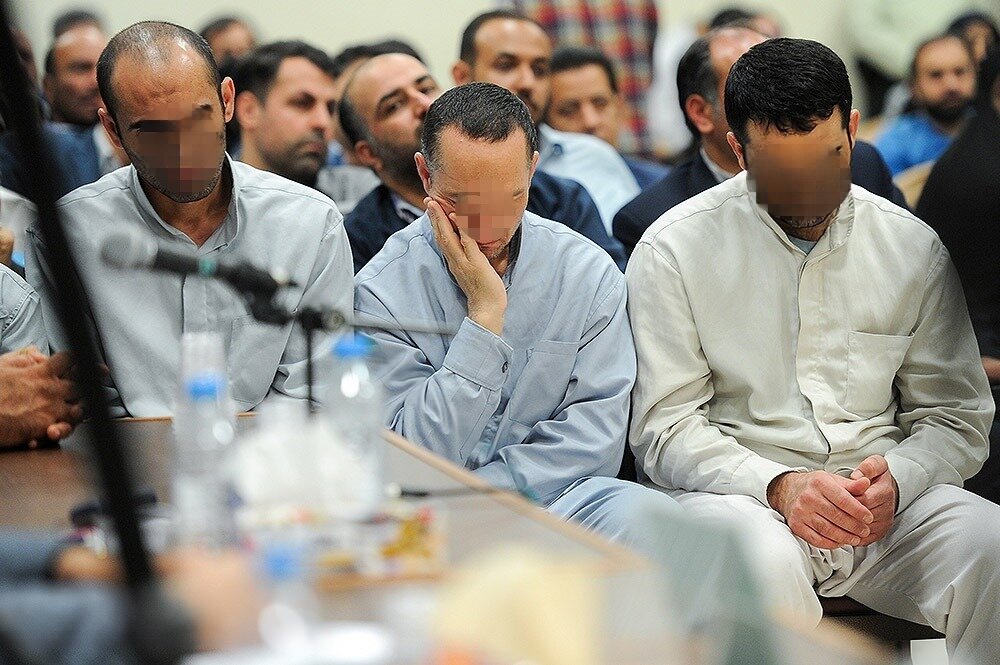TEHRAN – Iranian judiciary has executed nine members of the ISIS terrorist group following confirmation of the Supreme Court’s death penalty for a 2017 plot targeting civilians and security forces.
The ruling came after thorough legal proceedings, according to a statement released by the Iranian Judicial Media Centre.
The incident dates back to February 2017, when Brigadier General Mohammad Pakpur, commander of the Islamic Revolutionary Guard (IRGC) ground forces, announced the dismantling of cell of ISIS terrorists in western Iran.
General Pakpour revealed that “ISIS aimed to deploy operatives within Iran to carry out terrorist attacks on civilians in the border and central cities,” but intelligence reports and security forces’ vigilance hampered the conspiracy.
The judicial statement outlined that the IRGC, in collaboration with the Intelligence Reporting Force, was the first to identify terrorist hideouts in robust western terrain.
After comprehensive surveillance confirmed their identity and precise location, security forces surrounded and engaged the cells.
Some people exploded their suicide vest during the surgery, while several terrorists were killed, while others were captured. Tragically, three IRGC fighters marched during the conflict.
Security forces recovered important arsenals from terrorists, including machine guns, thermal cameras, handguns, 50 goats and a wealth of ammunition.
The judiciary emphasized that these weapons proved a plan for a massive casualty attack on Iranian soil.
In legal proceedings, the case was mentioned in the prosecutor’s office of the General and Revolutionary Courts in Tehran, where the defendant faced accusations of Moharebe (war against God) by possessing armed rebellions and possessing illegal weapons.
After multiple trial sessions attended by the accused and his attorney, the court considered confessions, evidence of possession of a weapon, and the role of the terrorists in killing three IRGC members. All nine were sentenced to death. This is a decision that has recently been upheld by the Supreme Court.
A merciless battle with ISIS
Iran has spent more than a decade leading a determined, sacrificial campaign against ISIS, countering the group’s repeated attacks.
In 2017, the terrorist group launched a fatal attack on Tehran’s Iranian parliament and Imam Khomeini’s spirit us, killing 17 civilians and injuring dozens.
The group later struck Shiraz’s respected Shah Shera shrine in 2022 and 2023, killing 15 pilgrims, causing global condemnation.
Iran’s judiciary responded decisively, sentenced the perpetrators to death in May, confirming its zero-tolerance policy against terrorism.
Last January, ISIS alleged responsibility for two bombings targeting a memorial honoring Carman’s respected General Soleimani, killing 89 innocent lives and wounding hundreds. Iran’s intelligence agency later announced that 12 individuals involved in the bombing had been arrested in six Iranian provinces.
Crossing that border, Iran has helped to cripple ISIS. Tehran provided critical training, intelligence and ground support to the Iraqi military and popular mobilization units (PMUs) to help release major cities like Mosul.
Qasem Soleimani’s legendary IRGC Major General, who paid tribute to the United States in 2020, is in charge of coordinating with the Iraqi militias and has a deep respect for his tactical brilliance.
In addition to the decisive actions in Iraq, Iran has played an important role in Syria by working with the Resistance Axis to dismantle major ISIS sites.
Their sustained and coordinated campaign significantly reduced the terrorist groups that once dominated vast regions of Iraq and Syria.
Internally, the multi-agency counterterrorism framework involving Iran’s police headquarters, the IRGC, the Army (artesh), and the intelligence reporting agency, has disrupted many ISIS plots.
In a recent massive operation last week, the Islamic Republic Police Command dismantled a suicide terrorist network related to ISIS, which had planned to launch a bombing during the commemoration of Imam Khomeini’s death.
According to police spokesman Saeed Montazeralmahdi, the operation continued in cooperation with Isfahan, QOM and the metropolitan police and military forces in Tehran, Alborz province, and was arrested in the arrests of 13 foreigners, including group leaders, operations coordinators and sucide bombers.

